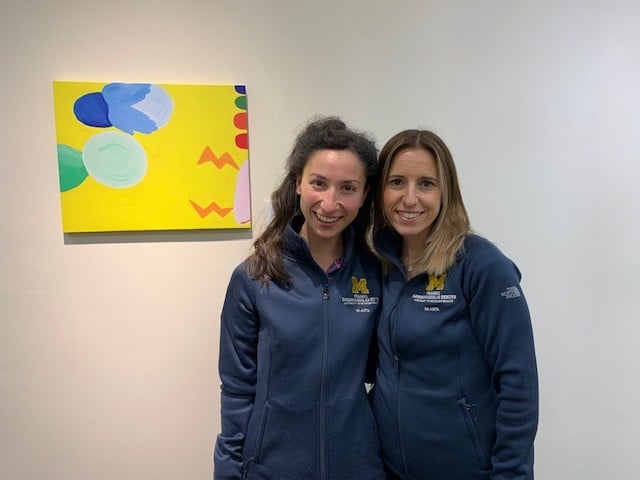Blog
University of Michigan’s Vasculitis Program: Hoping to Impact Individual Patients and the Approach to the Diseases

The University of Michigan (U-M) Vasculitis Program began in September 2021 with a soft launch.
“We started simply by instituting a dedicated vasculitis clinic and have been moving forward step by step,” said Ora Singer, MD, MS, Director of U-M’s Vasculitis Program. Both Dr. Singer and her colleague Julia Ford, MD, the Associate Program Director of the program, are members of the Vasculitis Clinical Research Consortium (VCRC). “We are very proud of the progress we have made over the course of a year,” Dr. Singer said. “The primary goal of our program is and will always be to provide cutting-edge, patient-centered care to patients with vasculitis.
Vasculitis is a systemic disease and as any patient who has lived through it can tell you, it needs a multi-disciplinary approach. Rheumatologists are generally not the only care providers. Within U-M’s Vasculitis Program, there are relationships and collaborations with colleagues from radiology, pathology, vascular medicine/surgery, otolaryngology, pulmonology, nephrology, and neurology, to name a few. While U-M’s Vasculitis Program does not currently accommodate seeing multiple providers from different specialties in one visit, these relationships with specialists with an interest in and a knowledge of vasculitis from other disciplines help patients navigate the system. It also keeps open lines of communication for discussion and review of the best approach for each patient
“We’d like to offer our patients not only care by knowledgeable and compassionate providers but also access to the newest modalities for diagnosis and treatment,” Dr. Singer said. As an example, one of the first actions taken to improve vasculitis care was to review and overhaul the vasculitis imaging protocols with radiology colleagues. Additionally, the program is in the midst of establishing vascular ultrasound for the diagnosis of temporal arteritis. “We have worked with our vascular ultrasound unit to train technicians who are already experts in vascular ultrasound to perform temporal artery ultrasound and hopefully replace, or at a minimum, reduce need for temporal artery biopsy. We also have rheumatologists who excel in bedside ultrasound and are working with them to set up a fast-track clinic,” Dr. Singer added.
The vasculitis program’s research and discovery goals focus on large-vessel vasculitides including Takayasu arteritis, giant cell arteritis, aortitis, and others. Drs. Singer and Ford are members of U-M’s Frankel Cardiovascular Center (FCVC)—a premier hub for the treatment of vascular diseases with a large aortic center. The opening of the vasculitis program coincided with the start of a FCVC program called Mi-Aorta. Mi-Aorta is made possible by a generous, anonymous donation and aims to transform Michigan Medicine’s highly reputable, multi-disciplinary aortic program into one that is world-renowned. Funds have been allocated to establish an aortitis program as part of Mi-Aorta. The FCVC already has a large database and biorepository of aortic specimens from aortic aneurysm repairs. Drs. Singer and Ford have begun to identify and characterize those specimens from patients with aortitis. In addition to this retrospective review, “We are establishing a prospective cohort of patients with aortitis, which will include collection of clinical data, patient assessments, as well as blood and tissue samples for basic science and translational research,” Dr. Singer said.
The need for specialty vasculitis care stems from the fact that these are rare diseases and hard to recognize. “We see many patients coming through our in-patient units who have been ill for months to years, have seen multiple providers and have not had the diagnosis made. Our program can help by raising awareness and educating local providers,” Dr. Singer noted.
Patient education will be a cornerstone of the program and an integral part of the routine clinic visits. “The VF is perhaps one of the best resources for patients to learn about their diseases, yet still what remains central to patient experience is what patients learn from the relationship with their own providers. First and foremost, in U-M’s Vasculitis Program we are committed to making sure our patients feel comfortable, are informed, and have questions answered,” Dr. Singer concluded. Beyond that, the clinic shares information through its program website and hopes to work with the VF to schedule a patient seminar in the spring of 2023.






